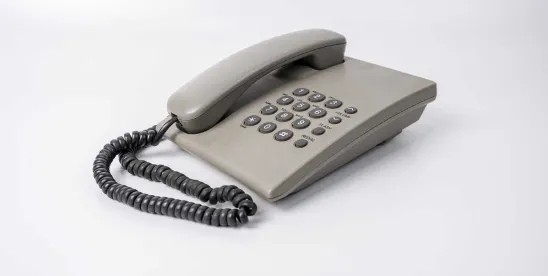The Supreme Court issued a decision on June 20, 2025, in McLaughlin Chiropractic Associates, Inc. v. McKesson Corporation, which may fundamentally alter the landscape for businesses subject to the Telephone Consumer Protection Act (“TCPA”). In a 6–3 ruling, the Court held that district courts are not required to follow the Federal Communications Commission’s (“FCC”) interpretations of the TCPA in enforcement proceedings, unless Congress has expressly stated otherwise. This marks a significant departure from the longstanding practice in many jurisdictions, where district courts treated FCC orders as binding in TCPA litigation.
Background: The TCPA, the FCC, and the Hobbs Act
The TCPA is a federal statute that restricts certain telemarketing practices, including calls, texts, and faxes, and provides for statutory damages and class actions. Over the years, the FCC has issued a series of orders interpreting the TCPA’s provisions. Under the Hobbs Act, challenges to these FCC orders had to be brought in federal appellate courts within a short window after the order was issued. For years, this framework led many courts to conclude that district courts were bound by the FCC’s interpretations in subsequent enforcement actions, effectively preventing businesses from challenging the FCC’s reading of the law when sued for alleged TCPA violations.
The Supreme Court’s Reasoning
In its decision, the Supreme Court clarified that, absent an express statutory preclusion of judicial review, district courts in enforcement proceedings are not bound by an agency’s pre-enforcement statutory interpretation. Instead, courts must independently interpret the statute, giving appropriate respect to the agency’s views but not treating them as controlling. The Court emphasized that unless Congress has clearly stated that judicial review is precluded in enforcement proceedings, the default rule is that courts may review agency interpretations. The Hobbs Act, the Court found, does not contain such a preclusion.
The Court’s opinion explained that the Hobbs Act’s grant of “exclusive jurisdiction” to the courts of appeals to “determine the validity” of agency orders refers to pre-enforcement declaratory judgments, not to the process of determining liability in enforcement actions. When a district court disagrees with an agency’s statutory interpretation in an enforcement proceeding, it is not issuing a declaratory judgment on the validity of the agency’s order, but rather determining the correct interpretation of the statute for the case at hand.
Implications and Strategic Considerations Going Forward
For businesses that make calls or send text messages, this decision opens new avenues for defending against TCPA claims. Parties are no longer locked into the FCC’s interpretation of the statute and can now argue in district court that the agency’s reading is incorrect, even if they did not challenge the FCC’s order within the Hobbs Act’s 60-day window. This change means that businesses have expanded defenses in TCPA litigation, as they can advocate for their own interpretation of the law rather than being bound by potentially unfavorable FCC guidance.
However, this new flexibility comes with increased uncertainty. With district courts now free to reach their own conclusions about the meaning of the TCPA, there is a greater likelihood of inconsistent rulings across different jurisdictions. This could lead to forum shopping, as plaintiffs and defendants seek out courts perceived as more favorable to their interpretation of the statute. Over time, divergent district court decisions may result in circuit splits, which could prompt further Supreme Court review and prolong uncertainty until key issues are resolved at the highest level.
The decision also suggests that compliance with FCC guidance is no longer a shield in court, and companies should not assume that following agency interpretations will be dispositive in litigation. Instead, businesses must be prepared for the possibility that courts will interpret the TCPA differently from the FCC, and should adjust their compliance and litigation strategies accordingly.
In light of this decision, businesses should continue to monitor both FCC guidance and judicial developments in the TCPA space. Compliance programs may need to be revisited to account for the possibility that courts will not defer to the FCC’s interpretations. In litigation, companies should be prepared to challenge FCC interpretations and defend their own reading of the statute. The legal landscape is now more fluid, and what was once settled by FCC order may now be open to judicial debate.
Conclusion
The Supreme Court’s ruling in McLaughlin Chiropractic Associates, Inc. v. McKesson Corporation represents a potentially significant shift in TCPA enforcement and litigation. Businesses that make calls or send text messages should review their compliance strategies and be prepared for a more dynamic and potentially unpredictable legal environment. It is advisable to consult with counsel to assess how this decision may affect your risk profile and defense options in current or future TCPA litigation.





 />i
/>i
